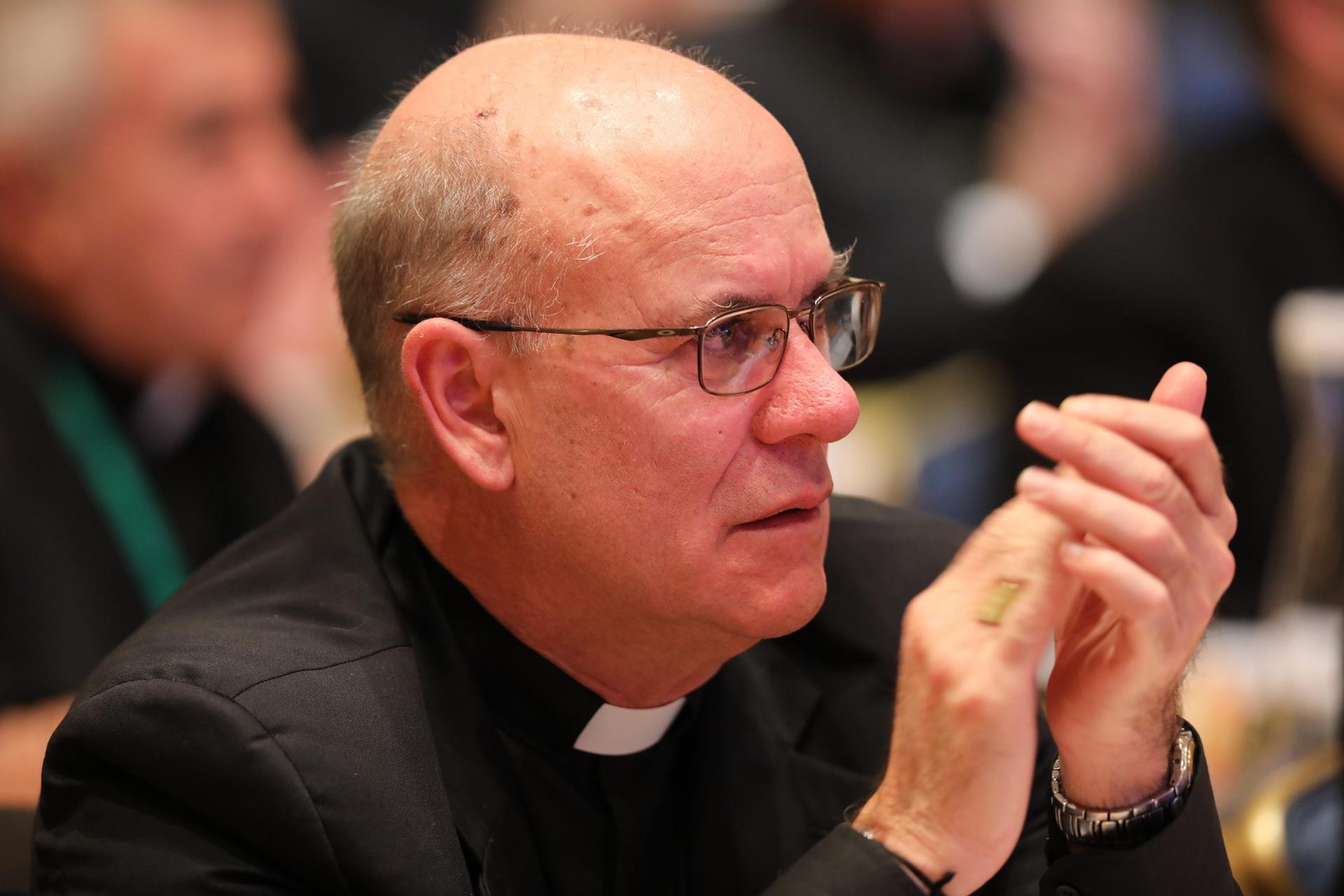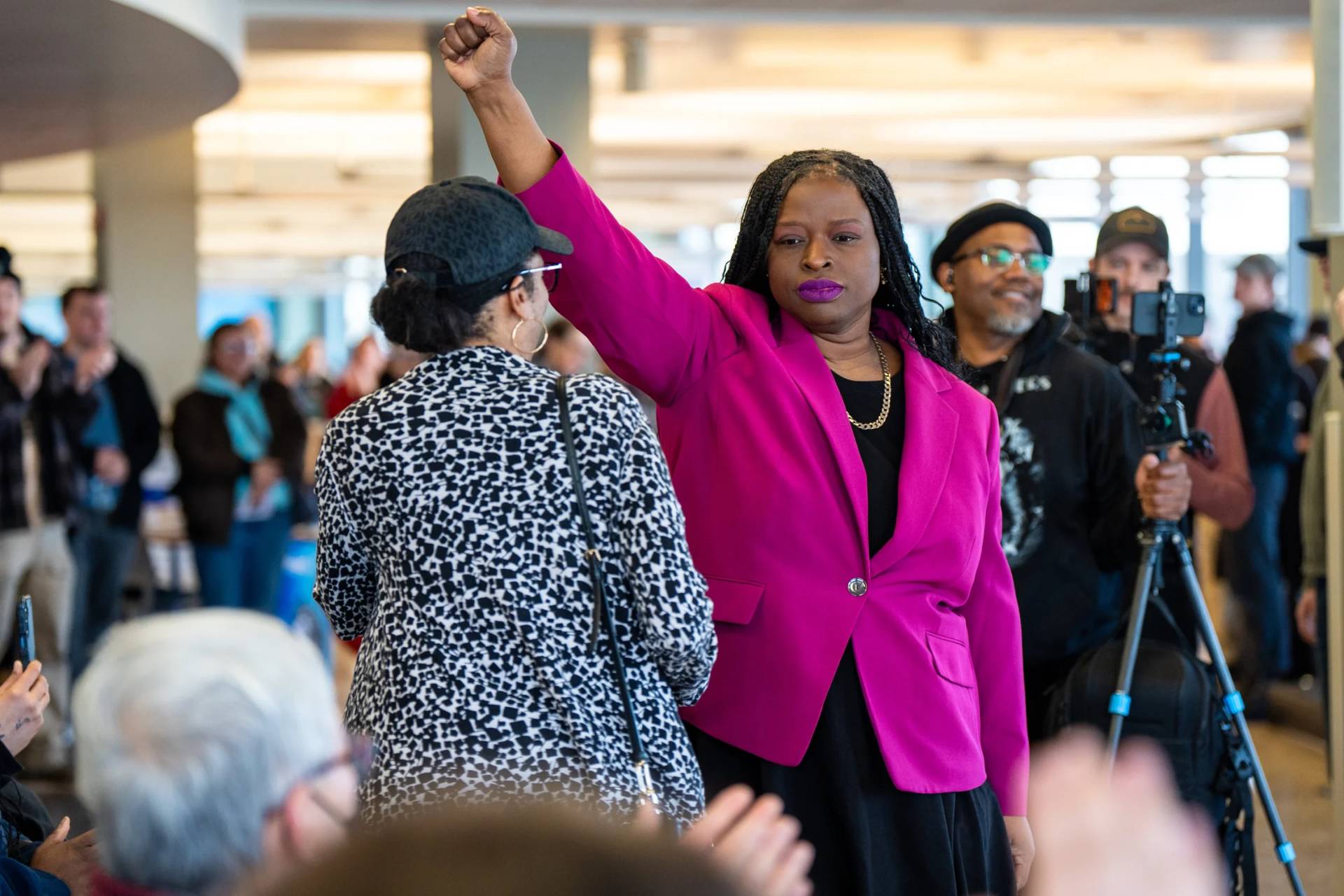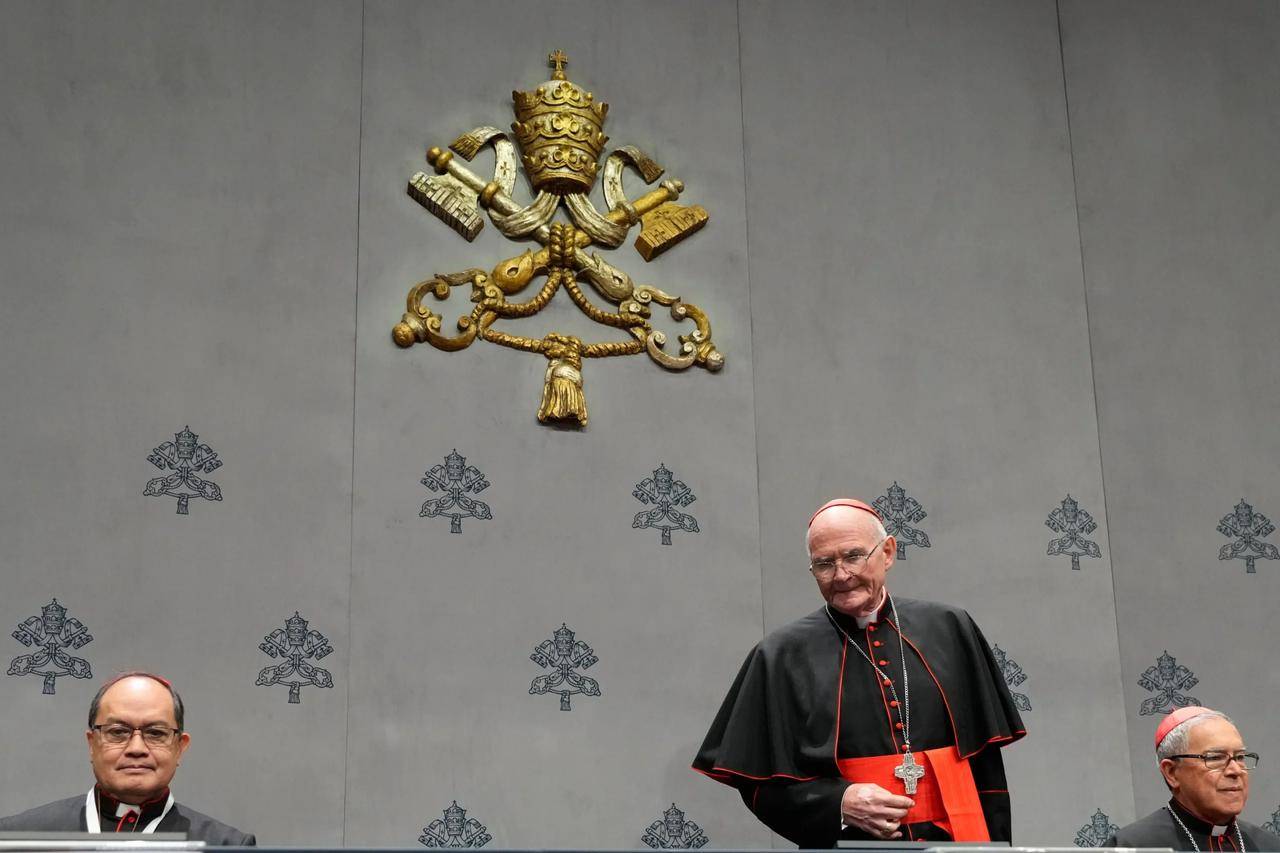NEW YORK – A first-of-its-kind report from the U.S. Bishops’ Conference spotlights religious freedom concerns nationwide with a particular concern for attacks on houses of worship, as well as efforts by federal agencies to impose abortion and gender-related requirements.
The 48-page report, which was published Jan. 16, also highlights the legislative threats to Catholic ministries that serve migrants, and the “suppression of religious speech up-holding marriage and sexual difference” that has become more commonplace in recent years.
Bishop Kevin Rhoades of Fort Wayne-South Bend, who leads the USCCB Committee for Religious Liberty that compiled the report, said in a statement that “Catholics have a vital role to play in defending religious freedom and promoting the common good.”
“Alongside the great work that many other Catholic and religious liberty organizations are doing, I pray that this report helps raise awareness of the threats to our first freedom here in America, and that it helps Catholics and all people of good will contribute to the common good of these United States,” he said.
At the top of the report’s list of the five largest threats to religious liberty in 2024, is attacks on houses of worship. The report highlights the possibility of attacks on synagogues and mosques as the Israel-Hamas conflict continues, as well as attacks on Catholic facilities by both left- and right-wing extremists, which the report warns could continue, or even become worse, as the 2024 election gets closer.
Left-wing extremist attacks on Catholic churches often relate to anti-abortion advocacy, which have become more common since the Supreme Court overturned Roe v. Wade in June 2022, the report suggests. Meanwhile, right-wing extremists could view Catholic churches and Catholic charities facilities as targets for anti-immigrant sentiment or violence.
“The committee was founded in response to increasing legal threats to the free exercise of religion that the U.S. bishops discerned at the time, so it is unusual for the committee to be compelled to decry foreseeable threats to the very lives of people of faith here in the United States, but there is no greater threat to religious liberty than for one’s house of worship to become a place of danger, and the country sadly finds itself in a place where that danger is real,” the report states.
The report was published on Jan. 16, which is national religious freedom day.
The Committee on Religious Liberty was formed as an Ad Hoc Committee in 2011 to work for a period of three years. The bishops then voted to extend the committee for another three years in 2014. Ultimately, they voted to make the committee permanent at their June 2017 general assembly.
Another threat the report highlights is the legislative threats to faith-based organizations serving migrants.
Specifically, the report focuses on the Secure the Border Act, which in 2023 passed the House and not the Senate. Plainly put in the bill’s text, it would defund any organization that “facilitates or encourages unlawful activity, including unlawful entry.” Another provision in the bill would zero out any funding from the Department of Homeland Security for “transportation, lodging, or immigration legal services to inadmissible aliens,” which faith-based organizations are on the forefront of providing.
The report notes that the legislation – led by Republicans in Congress – is unlikely to pass via the standard legislative process, but there are attempts by some on Capitol Hill to include parts of it – or all of it – in the must pass appropriations legislation that is currently being debated.
“It is important for elected representatives in Congress to be vigilant against the use of this tactic,” the report states. “Those who claim to defend religious liberty in Congress must also stand against their colleagues’ efforts to intimidate and denigrate religious charities striving to meet newcomers’ basic human needs.”
Also highlighted are calls by some Republicans in Congress for formal hearings and investigations into the USCCB, Catholic Charities USA, and other religious charitable groups, accusing them of facilitating illegal immigration through the services they provide.
Another top threat, outlined by the report, includes regulations proposed by federal agencies.
The committee fears that proposed revisions to Section 1557 of the Patient Protection and Affordable Care Act, which at its core prohibits discrimination on the basis of sex including sexual orientation and gender, would force Catholic hospitals and religious health care workers to perform harmful gender transition procedures, including on children.
The report calls talk from the United States Department of Health Human Services on religious liberty protections in the proposal mere “lip service,” warning that, if enacted, the regulations would have a “chilling” effect on religious liberty regardless of legal challenges.
“While there is reason for optimism that such lawsuits would be ultimately successful once again, the regulation as proposed would undoubtedly exert a major chilling effect on the exercise of faith and conscience in health care, and would mark a regrettable entrenchment against the clear protections of the Constitution and the Religious Freedom Restoration Act,” the report states.
Another federal agency final rule proposal that has the committee concerned is the Equal Employment Opportunity Commission’s proposed regulations to the Pregnant Workers Fairness Act that “will retain its requirement that employers give employees paid leave for the purposes of obtaining an abortion,” which the report calls “unprecedented.”
The American bishops have issued their support for the Pregnant Workers Fairness Act – legislation that requires covered employers to accommodate a worker’s known limitations related to pregnancy, childbirth, or related medical conditions – but with this latest proposal they’re concerned not only about the abortion requirements, but that it doesn’t include strong enough religious liberty protections for faith-based objections to those requirements.
Finally, the report also highlights a concern that the “suppression of religious speech up-holding marriage and sexual difference” will continue this year, especially in schools, the workplace, and in health care, but also in the guidance of federal agencies like HHS and the EEOC.
The report includes suggestions of how Catholics should respond to religious liberty threats. It boils down to continued vigilance and advocacy, which Rhoades said Catholics have a vital role in.
“While most of the founders of our country were not Catholics, there’s much in their vision that resonates with a Catholic understanding of religious freedom,” Rhoades said.
“At the same time, we have a distinctive voice and tradition, particularly with our understanding of human dignity, faith and reason, natural law, the common good, and the rich heritage of Catholic social teaching, and so we Catholics have a vital role to play in defending religious freedom and promoting the common good,” Rhoades explained.
Follow John Lavenburg on X: @johnlavenburg













